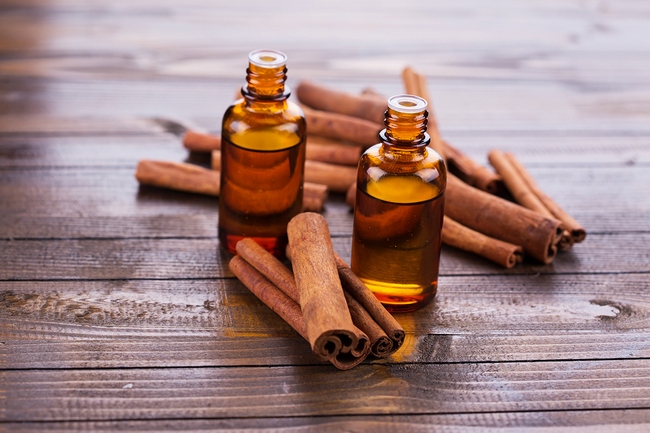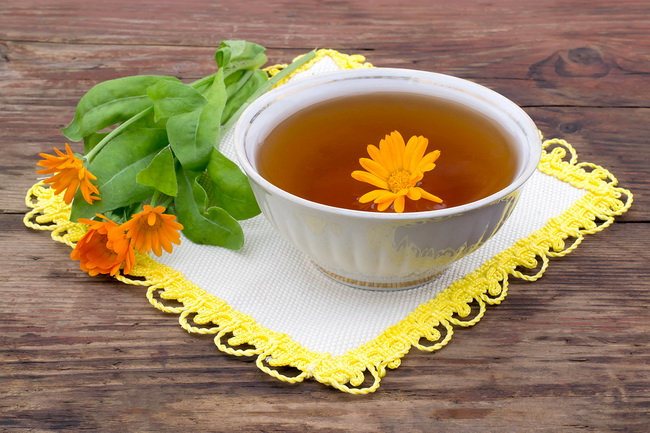- Make It Yourself Lavender Heart-Shaped Bath Bombs!
- 20 Things You Never Knew About “Down There”
- 12 Best Foods For Those Suffering From Arthritis Pain
- 12 Personal Hygiene Mistakes Almost Everyone Makes (Mom Never Told You About #4!)
- 15 Medicinal Plants And Herbs From The Cherokee People
- 12 Mind-Blowing Benefits Of Drinking Coconut Water During Pregnancy
- 12 Outstanding Winter Foods That Won’t Fatten You Up Like A Christmas Turkey
12 Natural Means of Dealing with a Hiatal Hernia (Love #4!)

Photo credit: bigstock.com
If you or someone you know is suffering from a hiatal hernia, then you know that pain and other symptoms that cause so much distress.
A hiatal hernia is a fairly common condition in which a small portion of the stomach protrudes through an opening in the diaphragm into the chest cavity. This condition is common among those who are 50 years of age or older and the obese. The exact cause of this condition is unknown but it’s believed that weak supportive tissues can be an important factor. Other factors are age related changes in the diaphragm, pressure on the stomach or surrounding muscles, or simply being born with a large opening in the diaphragm.
Other risk factors are obesity, excessive smoking, continual lifting of extremely heavy objects, and extreme stress.
Many people have small hiatal hernias and are completely unaware of it. In fact, it’s been estimated that perhaps as much as 60 percent of persons over the age of 50 have one. However, a large hiatal hernia often causes painful and unpleasant symptoms such as chest pain, difficulty swallowing, heartburn, frequent belching, feelings of fatigue, and feeling very full even after eating only small meals.
Although a small number of cases require surgery to repair, most people can find relief in some simple lifestyle changes and some natural remedies to help relieve the symptoms and allow the body to heal itself naturally.
Keep reading for the top 12 natural ways you can help to repair a hiatal hernia.
1. The Water Fix
The following exercise uses water and helps pull down the hernia from the opening in the diaphragm.
Before you go to bed, put a large glass of water nearby. First thing in the morning, while you are still in bed, drink the water. This will put some weight in the stomach. Now, stand up and lift your arms straight out from your side and bend the elbows so that your hands are touching your chest. This will stretch the diaphragm.
Now, rise up on your tiptoes as high as you can, then quickly drop back down to your heels, do this 6 or 8 times in a row. This will help your water filled stomach be pulled back down into the body.
Then, with your arms still in this position, take a few short, quick breaths with your mouth open for 15 to 20 seconds. This will tighten up the diaphragm and close the hole so that the stomach cannot protrude.
2. Yoga
Yoga is well known for being able to help alleviate the pain caused by hiatal hernias. Yoga will strengthen the diaphragm and stomach muscles, which will prevent the stomach from protruding through the diaphragm. Try poses such as Chair Pose several times each day to help improve your abdominal muscles. You should avoid poses such as the Bow, Cobra, or Bridge Pose, all of which put additional pressure on the abdomen. An instructor can help you tremendously in this area to teach you which poses will work best for you.
Continue to Page 2

Photo credit: bigstock.com
3. Cinnamon
This spice can help to relive bloating and abdominal pain by soothing and calming the stomach. You can drink cinnamon tea or simply add ½ of a teaspoon of cinnamon to one cup of boiling water. Cover and steep for 5 minutes, then stir and drink while still warm. Drink one cup about15 minutes before or after each meal for relief from symptoms.
4. Apple Cider Vinegar
You might not have thought about this as a remedy for your hiatal hernia, but it is actually an excellent remedy for reducing the most common symptoms of a hiatal hernia such as heartburn. Although acidic in nature, it has an alkaline affect once inside the body. Simply add 1 or 2 teaspoons of raw, unfiltered apple cider vinegar to a glass of warm water and sip it about 30 minutes before each meal.
5. Baking Soda
This is a natural antacid that has been used for untold ages for the relief of indigestion, gas, and heartburn, which are some of the most common symptoms of hiatal hernias. Mix half of a teaspoon of baking soda in a glass of water and drink at the first sign of these painful symptoms. Drink this remedy as needed but avoid drinking this in excess.
If you have hypertension, you should avoid this remedy.
6. Slippery Elm
This is an effective herb to help with the symptoms of your hiatal hernia. Slippery elm reduces heartburn, has a soothing effect on the stomach and is loaded with anti-inflammatory compounds. Slippery elm is available in almost all health food or natural stores. Mix 1 tablespoon of powdered slippery elm in 1 cup of hot water. Steep for 10 minutes and drink twice each day, soon after eating a meal.
Continue to Page 3

Photo credit: bigstock.com
7. Gentian Tea
This is an age old means of preventing heartburn and indigestion. Simmer one teaspoon of gentian tea in a cup of boiling water for 30 minutes. Add a pinch of cayenne and ginger to the tea and drink this 30 minutes before each meal.
8. Strengthening Exercises
Doing exercises that strengthen the stomach and diaphragm will help keep your hiatal hernia under control. When done regularly, these exercises can target the abdomen and stomach muscles which will reduce the risk of the hernia returning.
One such exercise is to lie down on your back with your knees bent so that your feet are flat on the floor. Life the lower back and butt off the ground. Your shoulders and feet should remain on the floor. Hold this position for a count of 5, and then lower yourself back to the floor. Do this 10 times and work up to doing 3 sets of 10 each day.
9. Calendula Tea
Like Gentian tea, calendula tea is another age old remedy for indigestion and heartburn. Calendula tea will calm and soothe the stomach as it is well known for reducing inflammation and easing inflamed tissues. Drink one cup of calendula tea either 30 minutes before eating or directly after meals.
Continue to Page 4

Photo credit: bigstock.com
10. Chamomile
This is a popular natural remedy for hiatal hernias as it has profound anti-inflammatory compounds. It relaxes the muscles of the digestive tract, which can allow the stomach to fall back into place. Drink one cup of chamomile tea 4 times each day, between meals, or anytime you start to feel the pain and discomfort of your hiatal hernia.
11. Aloe Vera
Many people find that this plant not only helps with minor kitchen burns but that it also helps treat many of the digestive problems caused by an hiatal hernia. It controls both inflammation and heartburn, as it soothes the inner lining of the intestines.
Drink ¼ cup of aloe vera juice about 20 minutes before a meal for best results.
SEE ALSO: 15 Natural Remedies for Acid Reflux and Ulcers
12. Change Your Diet
One of the best methods of controlling your hernia symptoms is to keep a close watch on your diet. Avoid trigger foods such as caffeine, onions, garlic, fried foods, spicy foods, citrus fruits, tomato based foods, such as spaghetti sauce, and chocolate.
Eat a diet that is rich in fruits, vegetables, seeds, and nuts. Lean meats are acceptable, but avoid spicy foods, seasonings, or marinades.
Extra Tips:
- Have dinner at least 2 to 3 hours before bedtime
- Several small meals work best to avoid overloading the stomach
- Do not smoke; if you do smoke, quit
- If you are overweight, start a gradual weight loss plan
- Limit your alcohol consumption or avoid alcohol entirely if possible
- After eating, take a short walk, even 5 minutes will help
- Do not strain during bowel movements. Take a laxative if you must
- Wear loose clothing around your torso to avoid putting pressure on the stomach
- Elevate the head of your bed by 4 to 6 inches. This will prevent many symptoms such as heartburn or acid stomach
If your hiatal hernia is severe and your doctor has suggested surgery, try seeing a chiropractor first. They can often teach you how to realign a hiatal hernia and avoid surgery.
References:































